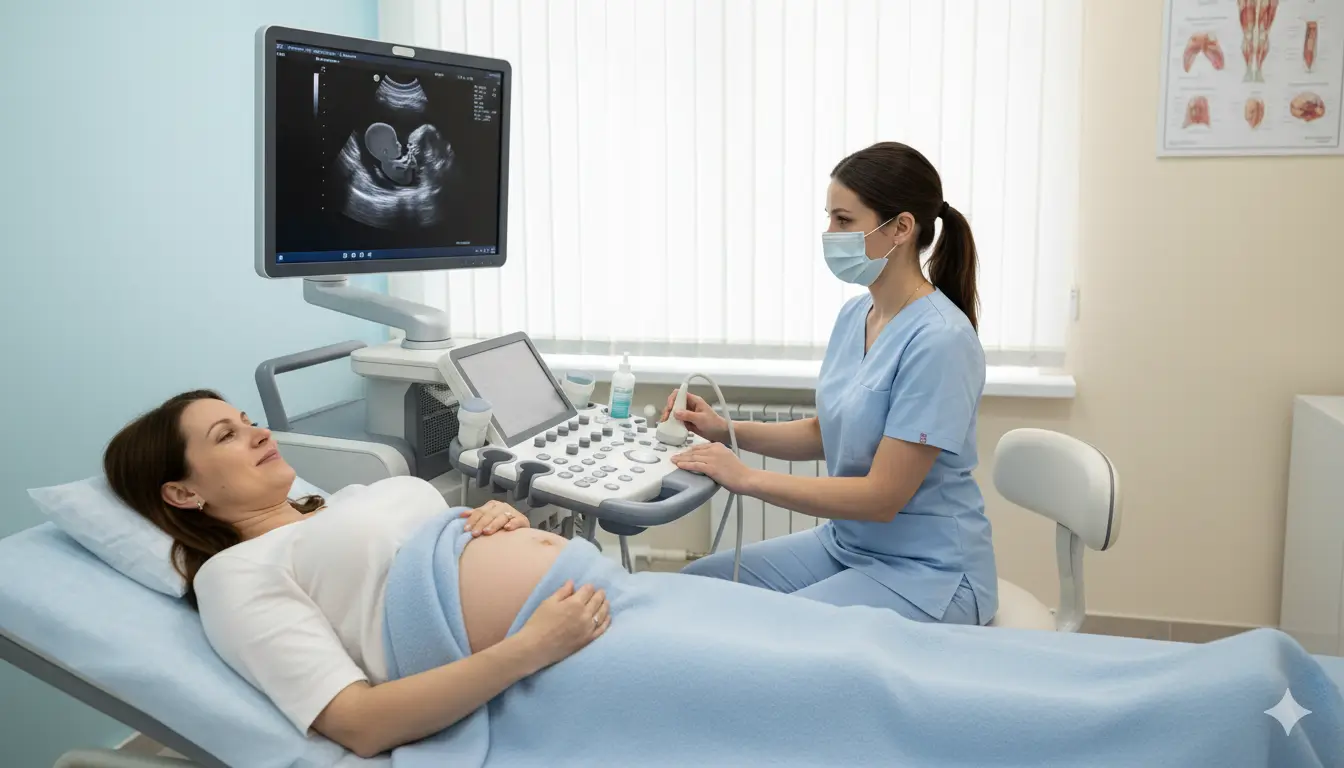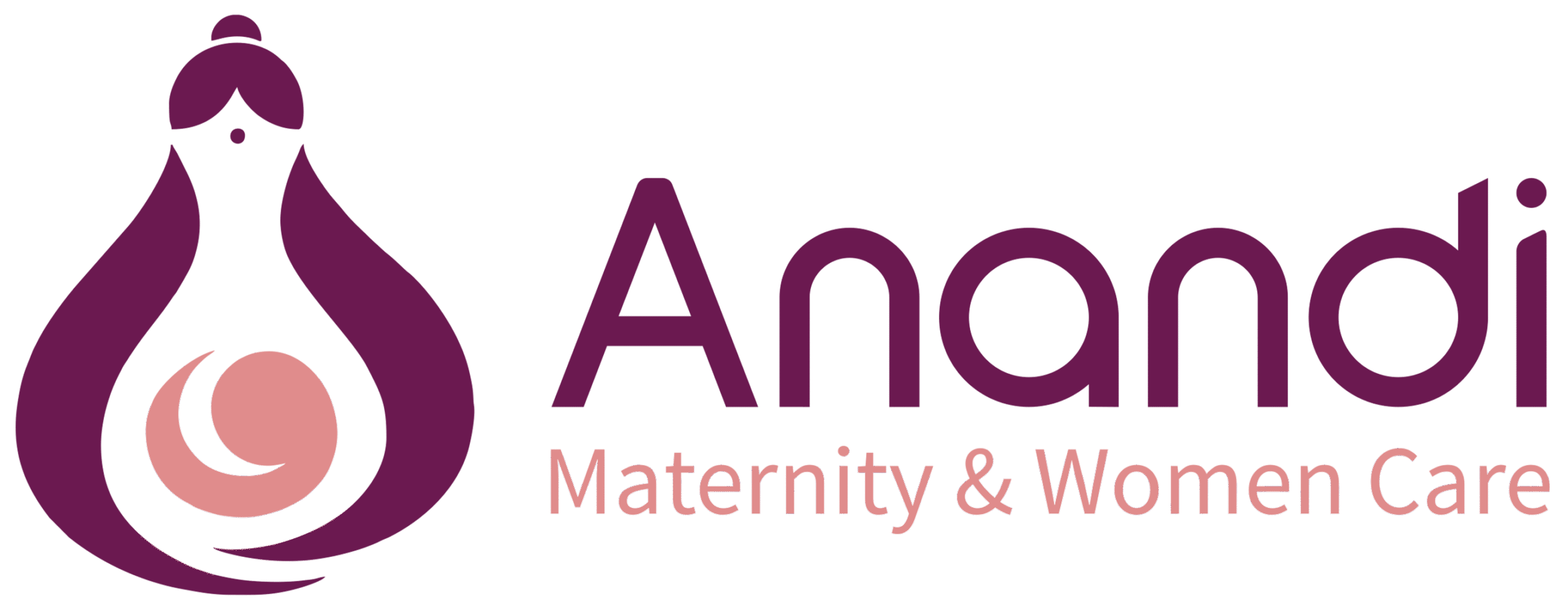Nuchal Translucency (NT) scan
The Nuchal Translucency (NT) scan is a common prenatal screening test performed in the first trimester to assess the risk of chromosomal abnormalities like Down syndrome. While many women undergo this scan, it is not always necessary for everyone.
Doctors typically recommend the NT scan based on maternal age, medical history, and risk factors. In this guide, we will explain who needs an NT scan, its purpose, accuracy, and when doctors recommend it.
What is NT Scan During Pregnancy?
An NT scan, or Nuchal Translucency ultrasound, is a non-invasive screening test performed between 11 and 14 weeks of pregnancy. The test measures the fluid-filled space at the back of the baby’s neck, which can indicate the risk of genetic conditions like Down syndrome (Trisomy 21), Edwards syndrome (Trisomy 18), and Patau syndrome (Trisomy 13).
How Is the NT Scan Performed?
- The test is done using an ultrasound.
- It can be performed abdominally or transvaginally for better accuracy.
- The measurement of the nuchal translucency (fluid space) is taken and combined with blood test results for a more accurate risk assessment.
Does Every Pregnant Woman Need an NT Scan?
Not necessarily. While the NT scan is a routine screening test, doctors may not recommend it for women who:
- Have no known genetic risks.
- Are under 35 years old with no high-risk factors.
- Have no family history of genetic conditions.
- Have undergone other advanced genetic screening methods like NIPT (Non-Invasive Prenatal Testing).
However, some doctors recommend the NT scan for all pregnant women as an additional non-invasive method to assess fetal health.
Who Should Get an NT Scan?
1. Women Over 35 Years of Age
The risk of chromosomal abnormalities increases with maternal age. Women over 35 are often advised to undergo an NT scan as part of routine screening.
2. Those with a Family History of Genetic Disorders
If there is a family history of genetic conditions like Down syndrome, doctors may recommend the NT scan along with additional genetic testing.
3. Women Who Have Had Abnormal First-Trimester Screening Results
If initial blood tests or ultrasound findings suggest a higher risk, an NT scan can provide further insight.
4. Those Who Had a Previous Pregnancy with Chromosomal Abnormalities
Women who have previously had a baby with genetic conditions may be advised to undergo early screening with an NT scan.
5. Expecting Mothers Undergoing Combined First-Trimester Screening
The NT scan is often paired with a blood test (called the First-Trimester Screening) to improve accuracy.

When Is an NT Scan Done?
Doctors recommend an NT scan between 11 and 14 weeks of pregnancy because:
- The fetal neck translucency measurement is most accurate during this period.
- It helps doctors assess genetic risks early, allowing time for further testing if needed.
- After 14 weeks, the fluid in the baby’s neck is absorbed, making the test ineffective.
How Accurate Is an NT Scan?
1. NT Scan Alone
- It is a screening test, not a diagnostic test.
- Accuracy ranges from 70-75% in detecting chromosomal abnormalities.
2. NT Scan with First-Trimester Screening
- When combined with a blood test, the accuracy increases to 85-90%.
3. NT Scan with NIPT (Non-Invasive Prenatal Testing)
- When paired with NIPT, accuracy can exceed 99%.
- NIPT is often recommended for high-risk pregnancies.
What Happens If the NT Scan Shows a High Risk?
A high NT measurement does not confirm a genetic disorder. It only indicates a higher risk, and further testing may be needed:
1. Non-Invasive Prenatal Testing (NIPT)
- A simple blood test that analyzes fetal DNA in the mother's blood.
- More accurate than the NT scan and does not pose any risk to the baby.
2. Chorionic Villus Sampling (CVS)
- A diagnostic test done between 10-13 weeks.
- Involves taking a sample of placental tissue for genetic analysis.
3. Amniocentesis
- A test done after 15 weeks, where a small sample of amniotic fluid is taken for chromosomal analysis.
- It provides a definitive diagnosis but carries a slight risk of miscarriage.
Pros and Cons of NT Scan
Pros
Non-invasive and safe for both mother and baby. |
Helps detect early signs of chromosomal abnormalities. |
Can be combined with other tests for better accuracy. |
Provides peace of mind for expectant parents. |
Cons
Not 100% accurate, only provides a risk assessment. |
May cause anxiety if results show a high risk. |
A high-risk result may require invasive follow-up tests. |
Must be done within a specific time frame (11-14 weeks). |
Conclusion
While an NT scan is not mandatory for all pregnant women, it is a valuable screening tool for detecting early signs of genetic conditions. Doctors recommend it for high-risk pregnancies, women over 35, and those with a family history of genetic disorders.
If you are unsure whether you need an NT scan, consult your OB-GYN to discuss your risk factors and screening options.
For expert prenatal screening and pregnancy care, schedule an appointment at Anandi Hospital today.
Frequently Asked Questions (FAQs)
1. Is an NT scan mandatory for all pregnant women?
No, it is not mandatory. Doctors recommend it based on age, risk factors, and medical history.
2. What is considered a normal NT measurement?
An NT measurement of less than 3.5mm is generally considered normal, but interpretation varies by gestational age.
3. Can an NT scan detect Down syndrome?
The NT scan does not diagnose Down syndrome. It only estimates the risk, and further testing is needed for confirmation.
4. What happens if I skip the NT scan?
If your doctor does not find any risk factors, they may suggest other screening tests like NIPT instead of an NT scan.
5. Can I eat before an NT scan?
Yes, you can eat before the test. There are no dietary restrictions for an NT ultrasound.
